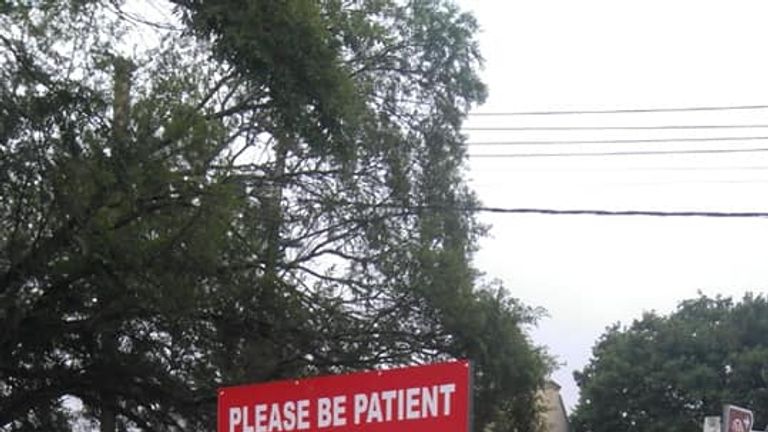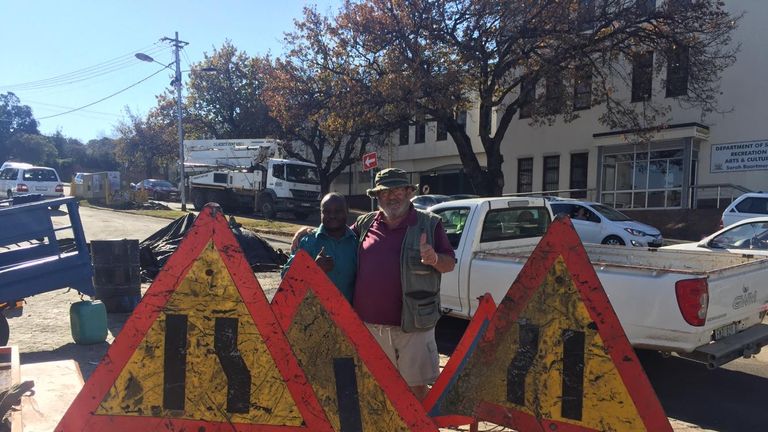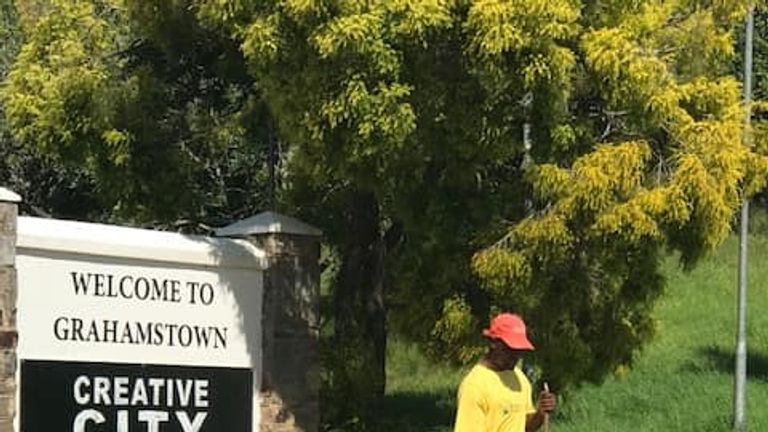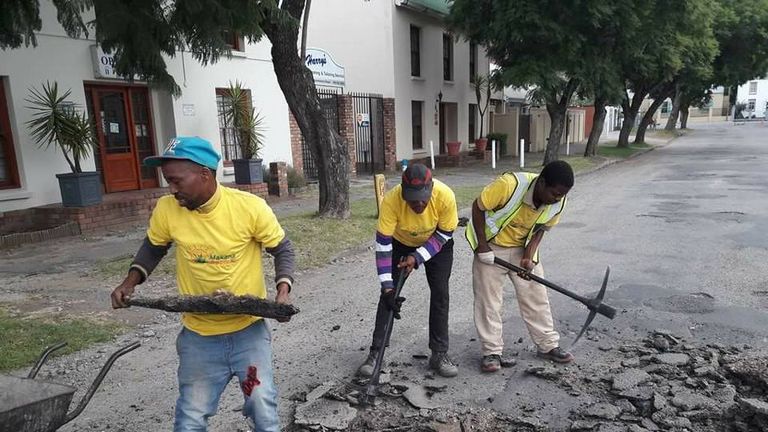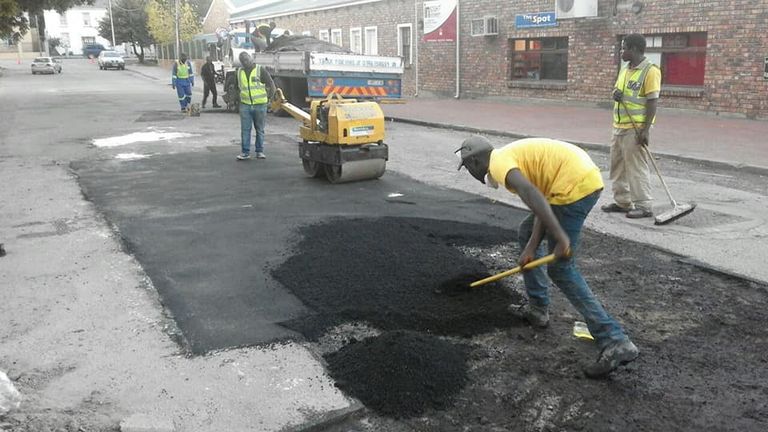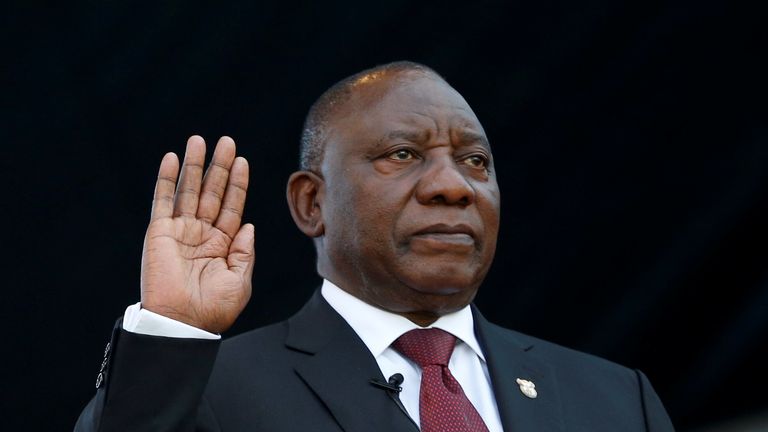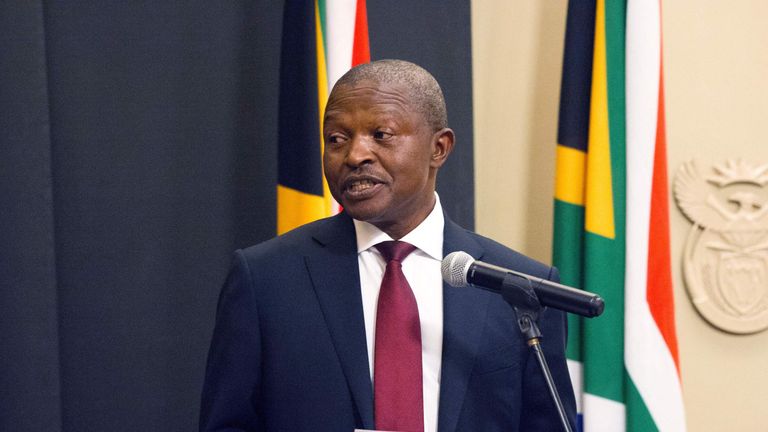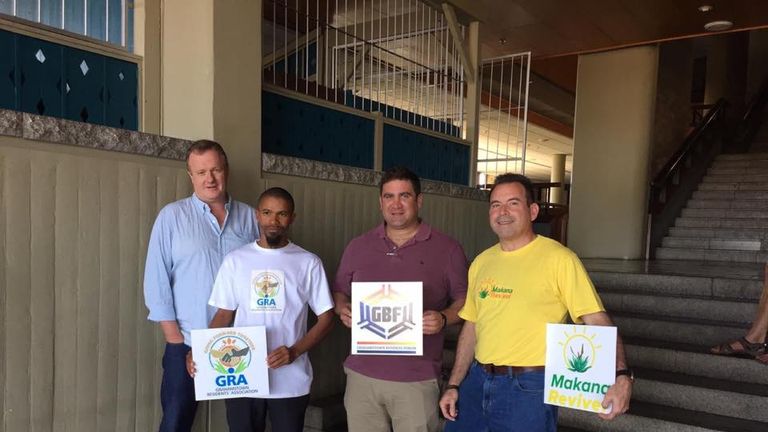Decade of corruption leaves former South African City of Saints in the dumps
Friday 31 May 2019 04:39, UK
Few places in Africa are blessed like Grahamstown, a community of 70,000, nestled amid the rolling hills of the Eastern Cape in South Africa.
It boasts a fine university called Rhodes and several prestigious private schools. The country's largest arts festival takes over the community's auditoria and public spaces during June and July and the locale's 40-odd churches have earned it the nickname City of Saints.
However, there is nothing holy about Grahamstown's current situation. After a decade of corruption and blinding incompetence at the hands of local, provincial and national politicians, this saintly city is in the veritable dumps.
The charge sheet is lengthy. For one, the near-total neglect of the municipal water system has created a health and sanitation crisis. Untreated sewage runs freely in parts of town and the supply of drinking water has nearly collapsed.
"This is a man-made disaster created by members of a municipal council who have no idea or experience of how to manage it," says businessman and activist Ron Weissenberg.
The local government cannot pay its electricity bills and the national utility ESKOM has threatened to cut the city off. Nor can it afford to administer to the potholes or the piles of rubbish which dot the community. Locals told us that patients in Grahamstown's hospital routinely sleep on the floor.
The flailing municipality did get a name change however - last year, the Minister for Arts and Culture changed Grahamstown to Makhanda - the name of a Xhosa warrior who fought against land dispossession at the hands of British settlers.
It took two centuries for Grahamstown - or Makhanda - to establish itself as an orderly and picturesque locale. Yet it has fallen fast and it shares this decline with dozens of other communities across the country.
In 2018, the government admitted that only 7% of the country's 257 municipalities could be considered "well-functioning". At least 87, including Grahamstown, were classed as "distressed or dysfunctional."
The co-operative governance minister, Zweli Mkhize, blamed "political instability, interference, corruption and incompetence".
This extraordinary failure to govern - to provide for basic needs and services - is the responsibility of the ruling African National Congress (ANC). It may have liberated the nation when former leader Nelson Mandela swept the apartheid regime aside, but as a party of sound administration it has failed.
A couple of weeks ago, South Africans gave the ANC's new leader, 66-year-old Cyril Ramaphosa, a chance to clean up the mess when he won a reduced majority of 57% in the national election. Without the respected activist-turned businessman in charge, analysts think the ANC would have been lucky to scrape 40%.
Mr Ramaphosa has promised to fight for a country where "public servants faithfully serve no other cause than that of the public", yet he is now struggling to balance this commitment with the need to reward party allies who backed his leadership bid.
ANC realpolitik has already intervened. Powerful party figures like former provincial premier David Mabuza expect payback for their support and Mr Ramaphosa has just appointed him deputy president - despite the fact that Mr Mabuza has been implicated in a litany of crimes, including conspiracy to murder, money laundering and fraud.
The rot has spread so extensively in South Africa that few think Mr Ramaphosa can fix it on his own - something the residents of Grahamstown know instinctively.
"You can't leave politics to the politicians," says Philip Machanick, a computer science professor at Rhodes who also heads the residents' association.
"We have to be involved. We have to help them do their job."
This rallying cry for a form of total-community politics has been embraced by a diverse group of people in Grahamstown.
City estate agents joined forces with members of the Unemployed Peoples' Movement and created a petition calling for the removal of the local council. Within weeks 22,000 people had signed up.
In response, the ruling-ANC replaced the mayor - but it has not touched the council members. In frustration, the activists filed a court motion to have the municipality dissolved for failing to provide a safe living environment for residents. The matter is still before the court.
"Here's the question," says Ayanda Kota of the Unemployed People's Movement. "Do we allow this town to sink into a black hole or do we do something to get it out? If we are going to save it, we have to do it together.
"Everyone has got to part of the conversation - poor people from the townships on the eastern side of town and the better-off from the west."
Frustrated by the potholes and piles of rubbish, Mr Weissenberg's Makana Revive organisation has raised funds and carried out basic community works - including running their own refuse collection service.
The city's business federation has taken the electricity utility, ESKOM to court. Their initiative has kept the lights on - at least for the time being.
"Lots of people have made contributions. Some chip in money. Others donate labour. We can't rely of government to solve all our problems," says Mr Weissenberg.
There are limits to what the residents can do. The cost of replacing the water and sewage system is beyond the means of ordinary residents but they can pressure their elected representatives do it for them.
"We need a competent government," says Mr Weissenberg. "Several council members are functionally illiterate and innumerate and they are making decisions on a Rand 450 million (£24m) budget. You can quote me on that."
Mr Ramaphosa has an idea about the sort of South Africa he wants - and he now has a stripped-down 28-person cabinet to help him achieve it. But the job of running this country is too big for this 66-year-old and his revolutionary party.
Total-community politics in the Grahamstown tradition means holding elected representatives to account, shaming them if they fail and even stepping in when necessary. It requires communities of saints to look out for each other nationwide.

